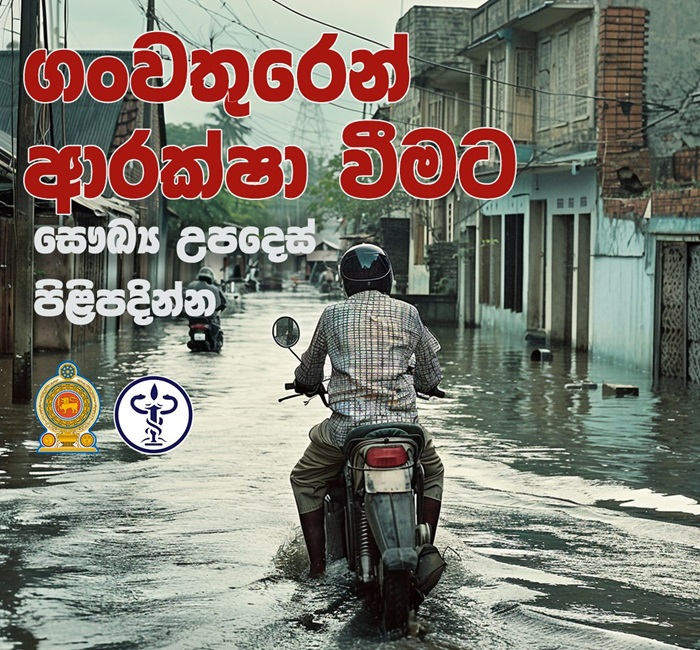
Sri Lanka’s Health Promotion Bureau has issued health and safety guidelines for people facing flooding in their areas due to the prevalent inclement weather conditions.
Issuing the guidelines, the Bureau emphasizes that it is essential to adhere to the health guidelines for the public to remain safe under the current situation.
The health guidelines are as follows;
Things not to do:
- Avoid walking or swimming in flood waters. It may contain harmful bacteria and debris that can cause injury.
- Don’t eat flood-damaged foods: Avoid and dispose of flood-damaged foods.
- Avoid exposure of children to flood waters: Keep children and pets away from contaminated water to prevent illness.
- Don’t ignore symptoms of illness: If you feel sick, do not delay in seeking medical attention.
- Avoid using contaminated water: Do not use flood water for drinking, cooking or bathing.
Things to do:
- Drink only safe water: Use boiled water or bottled water that has been boiled for at least 1 minute to avoid waterborne diseases. Minimize the use of water from flooded wells.
- Stay informed: Stay up to date with local news and weather forecasts.
- Removing mosquito breeding sites: Flood water can increase mosquito breeding. Therefore, identify places where water may have collected around your home and remove them.
- Wear protective clothing: Try to wear rubber boots and gloves whenever possible to prevent infections such as leptospirosis or rat fever when wading through floodwaters.
- Store food safely: To prevent food contamination, store food in areas that are not prone to flooding or store food in water-tight containers.
- Wash your hands: Always wash your hands with soap, especially before eating or preparing food.
- Seek medical advice: If you or a family member shows symptoms of illness, go to the nearest government hospital.






